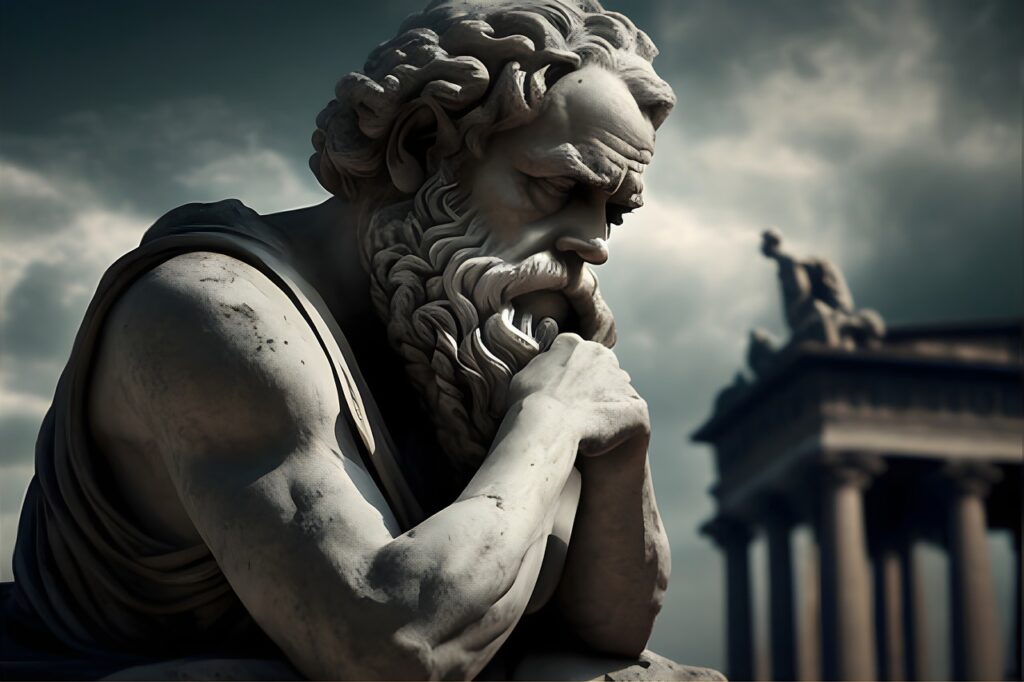
Philosophy is the study of the fundamental nature of knowledge, reality, and existence. It has been a central part of human intellectual development since ancient times, and has undergone numerous transformations and developments over the centuries. In this article, we will explore the history of philosophy, highlighting key thinkers and milestones that have shaped the discipline as we know it today.
Ancient Philosophy (600 BCE – 500 CE) The first recorded philosophical tradition emerged in ancient Greece, where philosophers sought to understand the world and human existence through rational inquiry. Pre-Socratic philosophers such as Thales, Anaximander, and Anaximenes focused on natural phenomena, seeking to identify the basic elements that compose the world. Socrates, Plato, and Aristotle, who lived in the 5th and 4th centuries BCE, are considered the founders of Western philosophy. Socrates emphasized the importance of critical thinking and the search for truth, while Plato developed a theory of knowledge based on the idea of the Forms or Ideas. Aristotle, in turn, focused on the study of nature, logic, and ethics.
Medieval Philosophy (500 CE – 1500 CE) The period following the collapse of the Roman Empire saw the rise of Christianity and the dominance of the Catholic Church in Europe. Many philosophers during this time, such as St. Augustine and St. Thomas Aquinas, sought to reconcile Christian theology with the teachings of ancient Greek philosophy. Augustine emphasized the role of faith in understanding God and the world, while Aquinas developed a philosophical system based on the idea of natural law.
Renaissance Philosophy (14th – 17th centuries) The Renaissance was a time of great cultural and intellectual flourishing in Europe, marked by a renewed interest in classical Greek and Roman ideas. Renaissance philosophers, such as Niccolò Machiavelli and Francis Bacon, rejected the authority of the Church and focused on the study of human nature and society. René Descartes, known as the father of modern philosophy, developed a method of inquiry based on doubt and skepticism, seeking to establish certain knowledge through reason alone.
Enlightenment Philosophy (17th – 18th centuries) The Enlightenment was a period of intellectual and cultural upheaval in Europe, characterized by a renewed emphasis on reason and the scientific method. Philosophers such as John Locke and Immanuel Kant sought to understand the nature of knowledge and the human mind, while also advocating for political and social reform. Other important Enlightenment thinkers include Jean-Jacques Rousseau, David Hume, and Voltaire.
19th and 20th Century Philosophy In the 19th and 20th centuries, philosophy underwent significant changes, with the emergence of new schools of thought and approaches to the discipline. German philosophers such as Friedrich Nietzsche and Martin Heidegger developed existentialist and phenomenological traditions, exploring questions of human existence and experience. In the 20th century, philosophers such as Ludwig Wittgenstein and Bertrand Russell developed the analytical tradition, focused on the use of language and logic to understand the world. Other important figures in 20th century philosophy include Jean-Paul Sartre, Simone de Beauvoir, and Jacques Derrida, who developed postmodern and feminist approaches to the discipline.
In conclusion, philosophy has a long and rich history, spanning over two millennia and encompassing a wide range of ideas and perspectives. From the ancient Greeks to contemporary thinkers, philosophers have sought to understand the world and human existence through rational inquiry, challenging assumptions and pushing the boundaries of human knowledge. While the discipline continues to evolve and change, its fundamental questions and concerns remain as relevant and important today as they have ever been.